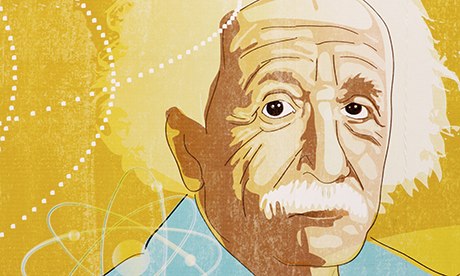We are what we think.
All that we are arises with our thoughts.
With our thoughts we make the world.
- The Buddha, quoted in the Dhammapada
We can endlessly get lost in the complexity of sustainable development, but the key to transformation is simplicity itself. Don't take my word for it; just listen to leading politicians and business leaders.
They recognise that at the core, all we really need to do to unlock the creativity and innovation that can turn us away from social and environmental disaster is to change our thoughts.
We can thank Einstein for popularising a key spiritual principle. He was quoted in quick succession by the prime minster of Denmark Helle Thorning-Schmidt and Paul Polman, the CEO of Unilever, at the recent two-day global green growth forum (3GF) in Copenhagen.
Thorning-Schmidt told the mix of prime ministers, CEOs, academics and heads of NGOs that what we need to do is change our mindset and quoted the world's most famous physicist who said that we can't solve problems by using the same kind of thinking we used when we created them.
She was followed by Polman who picked on another of Einstein's quotes; that the very definition of insanity is do the same thing over and over again, and expecting a different result.
Of course, Einstein was not the first to recognise the power of our mind to either contain or unleash our potential. More than 2,500 years ago, the Buddha said that "with our thoughts we make the world."
This is why personal transformation and the raising of our own awareness and consciousness is critical if we are to have a hope of creating a society truly based on sustainable principles.
After all, in the same way that there is not much point in an angry peace activist, a conservative-minded sustainability professional is neither of use nor ornament. We don't need incremental change, but visionaries who can imagine what a new economic system could look like.
Take the example of the 3GF conference itself, which on the one hand talked about the need to develop radical business models, but when it came down to it, built its key theme around the idea of resource efficiency.
The truth is that resource efficiency is only going to get us so far, and it's hardly the stuff of excitement that is going to get people leaping out of bed in the morning.
Much better if the conference had fully embraced the idea of the circular economy, which is based on a systems approach and fundamentally changing the way we organise our collective mind around the way we view the manufacture and end of use of products.
We thought up the idea of planned obsolescence to kick-start the major western economies in the wake of the Great Depression. But the thinking that led to such extraordinary mountains of waste is causing untold harm in an era of climate change and resource scarcity, so it's high time we changed it. Freeing the mind not only creates new possibilities but also, by its nature, generates a change in our behaviour.
Danish environment minister Ida Auken in Copenhagen told me how the government is ceasing to talk about waste and instead seeing what we dispose of as a valuable resource.
Anglian Water in the UK has taken much the same approach, banning the use of the phrase waste water, because when you stop to think, water is an increasingly valuable commodity. What this shows is that while rethinking our lives is the most important first step, the second is changing our language, because words are the manifestation of our thoughts.
While in Copenhagen, the innovation team at Ikea told me that the company is radically changing the way it thinks and the language it uses. This has resulted in the setting of big hairy audacious goals that go beyond the Swedish home furnishing company's current knowledge to achieve. For example, it has a long-term ambition to use 100% non-virgin materials in the manufacture of its products. That's a pretty bold vision for a company with annual sales in excess of €20bn.
Steve Howard, the chief sustainability officer at Ikea, points out that companies that set incremental targets, such as reducing carbon emissions by a few percentage points a year, are doing no-one a favour. He argues that the only target really worth setting is a 100% change. Ikea, for example, within two years will have moved to selling only LED lights and using only renewable energy for all its stores by 2020.
Howard has clearly understood the need to free Ikea's corporate mind from the straight-jacket of just trying to become more efficient at what it already does.
Denmark has taken a similar radical approach, committing itself to being completely free of its dependence on fossil fuels by 2050.
I am not for one moment suggesting that change, especially within a globalised world, is easy. It's actually incredibly difficult and requires courage, commitment and determination on an epic scale.
Dive into any particular arena, even as specific as the production of a single product, and you can experience an entire universe filled with complexity.
But the point is not to feel defeated or paralysed. Instead, have faith that when we truly change our minds, the world starts to change too. And this is where the hard work kicks in.

